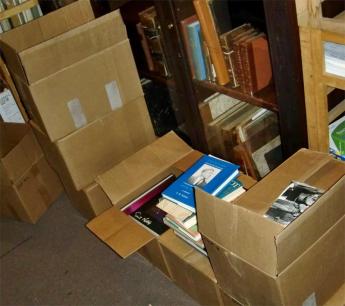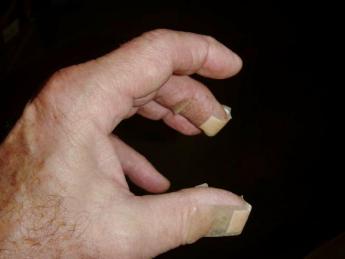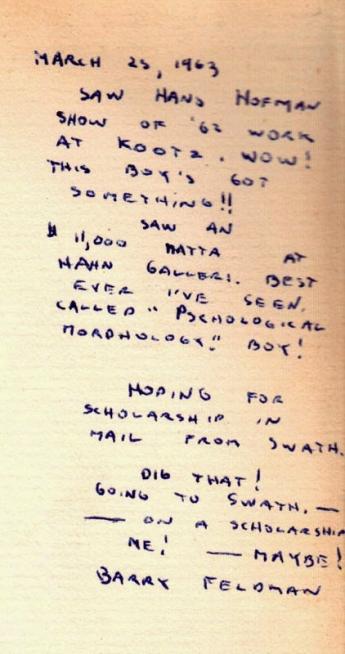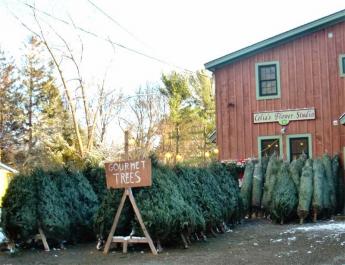Antiquarian Booksellers' Association of America Ten Pound Island Book Company
The Antiquarian Book Trade - House Calls and Archives
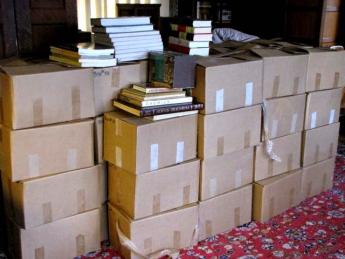
By Greg Gibson
As readers of this blog may be aware, I exited the retail “bricks and mortar” trade years ago. Sold my thousands of books, book shelves and store furniture, and settled down to life as a big shot highfalutin rare book dealer.
Almost immediately I found myself in acute distress owing to an unanticipated shortage of cash – I mean in the form of undeclared singles, fives, tens, and twenties that leaked in every day. Like any sensible retail shop owner I had depended on this trickle of green to provide for groceries, gas, whiskey, and other daily needs. Having to withdraw money from my company checking account every week to pay for this stuff seemed wrong, somehow.
The other things that stopped coming in the door (besides annoying retail time wasters and desperately needed cash), were books. I'd gotten quite used to the steady flow of material that drifted in over the transom, and the house calls that resulted from having a used book shop on a busy street. Indeed, one of the primary functions of my several shops had been to serve as billboards for people who had books to sell. When that was gone, so were they. Rare books are called “rare” because there aren't many of them. Consequently, house calls for rare books generally consist of long journeys to heft and haggle over a single ancient tome, or maybe two or three – hardly ever more than a couple of boxes.
I mention all this because I recently had a house call of the old kind – one involving 45 boxes of books. It also involved my artist friend Barry who, as you may recall from adventures previously recounted here, had inadvertently created and left behind a superb archive, a living document of the lives of a 20th century bohemian family – his own.
Well, it turned out that wasn't the only thing he left behind when he and his family moved to Greece. A couple of weeks ago I got a call for help from old friends down in Pennsylvania. It seems that 25 years earlier, Barry had deposited a huge load of books, along with hundreds of LPs and dozens of his paintings, in their barn.
Now my friends needed them gone because they wanted to renovate the barn. Barry, in Greece, had no way of removing them, and gave my friends carte blanche to do whatever they needed to do with his stash. Could I help? At least to insure they wouldn't be selling or throwing away any treasures?
I knew those books, I'd become familiar with them many years before, when I was doing shows in New York and staying with Barry and his family in Jersey City. They were good books - art, philosophy and literature - smart books. And probably, thanks to the rise of the Internet, worthless books.
No matter. I resolved to drive down there, cull the lot, take the best books back up here and put them in my wife's art gallery.
Even if they didn't sell, they'd look terrific. Accordingly, I drove off at 5 a.m. last Monday morning, and was in Pennsylvania by lunchtime. I tore through the 45 boxes and departed that afternoon with 7 boxes of very nice, very smart, but essentially worthless, art and literature.
What I hadn't anticipated was how soft I'd gotten in my years away from the used book trade. My mind was still sharp. I did the sorting and evaluation at lightning speed. But on the drive north, my back stiffened up so badly that, by the time I got to my motel in Nyack, I could barely crawl out of my car. In my room I noticed that my thumb and middle finger – the book picking digits - were worn raw at their tips. And my left, book picking, hand had developed acute tendinitis, extending up my forearm to the elbow. I was a wreck.
It had never occurred to me - or if it had, I'd forgotten - that being a used book dealer is damned hard work.
But what a lovely extension of the Barry archive those books were! As well as being an index of his taste and intellectual leanings, they contained his random jottings, poems, plot cribs, photos, bits of paper, and miscellaneous ephemera - footnotes to his past life.
Some of these writings were direct and unambiguous. For example, a note on the half title of Denise Levertov's “New Poems” read, Weekend in New York beginning Friday morning the 17th. Then “Elvira Madigan” then “Hair.” Others were quirky in the extreme. In e.e. cummings' “Selected Poems” I found, Oh how most “poets” are just bad journalists. You are what you eat, boy! Or how about this one, which was sufficiently poignant to scan in the original.
This put me in mind of my first and most formative house call experience, one that predated my bookselling career. In those early days I picked the city dump in my spare time, and one weekend I came upon the contents of an entire house that had been gathered up and thrown away, with no one to claim it. Personal effects, clothing, books, letters, furniture – the works, all in a heap awaiting Monday's compacting and burial. I spent hours hunched there surrounded by the stuff of that old widow's life, reading through her letters and books. By the time I left the dump, I felt as if I'd known her. Not just the facts of her life, but who she was. Such is the power of possessions and personal effects.
On the other hand there is something inherently unintentional about many of the archives I have handled. My Pennsylvania friends hardly regarded those annoying 45 boxes as a poignant archive. To them it was more like an abandonment, a nuisance. In that sense, I suppose, every time my two year old grandson fills his diaper, he leaves an “archive.”
On a completely unrelated note, I'm proud to announce that our family business, “Gourmet Trees” is again open for business. We sold a lot of trees this weekend, many to customers who remembered from last year what an excellent product we had on offer. Celia, in her flower shop, would close the deal, then call me to come over, cut the butt of the tree off, and lash it to the purchaser's vehicle. One yuppie couple, obviously repeat customers, told my daughter how nice it was that she had once again hired “that old man from across the street” to help her. Sic transit!
***
Posted on Bookman’s Log, presented here by permission of the author. Pictures: Bookman’s Log.
